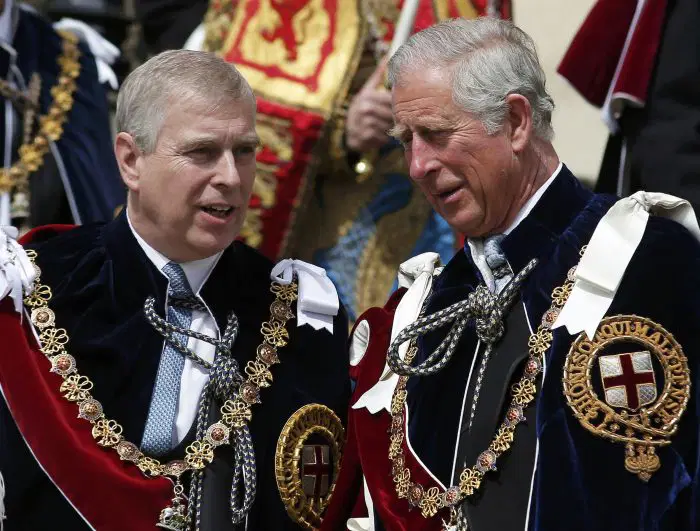Breaking News
UK Backs King Charles’s Decision to Strip Prince Andrew of Royal Titles
King Charles III’s decision to strip Prince Andrew of his royal titles and remove him from Windsor residence draws public support in the UK but sparks calls for deeper scrutiny and justice.

King Charles III’s landmark decision to strip his brother, Prince Andrew, of all royal titles has received broad support across the United Kingdom but has also triggered renewed demands for accountability and transparency within the monarchy.
The move, announced on Thursday, marks the first time since 1919 that a member of the royal family has been formally stripped of princely status. It follows mounting public outrage over Andrew’s ties to convicted US sex offender Jeffrey Epstein and fresh allegations from Virginia Giuffre, one of Epstein’s main accusers.
In addition to removing Andrew’s title, King Charles ordered him to vacate his long-time residence on the Windsor Castle estate. The decision came shortly after Giuffre’s posthumous memoir was released, reiterating her claims that she was trafficked to have sex with Andrew on three occasions — including twice at age 17.
“It’s a long time coming,” said Pam Williams, a retired teacher and long-term American resident in Britain. “Maybe he should have done it earlier, but well done for doing it now.”
British tabloids hailed the decision with bold headlines: “Finally!” declared the Daily Mirror, while The Sun quipped, “The Andrew Formerly Known as Prince.”
A spokesperson for Prime Minister Keir Starmer confirmed that the government “fully supports the decision taken” and noted that Downing Street was consulted prior to the announcement.
Biographer Andrew Lownie said the king had “done as much as he could do,” describing the move as a necessary attempt to restore public confidence.
However, Giuffre’s brother, Sky Roberts, said the action fell short: “It’s not enough. I commend the king, but we need to take it one more step further — he needs to be behind bars.”
Anti-monarchy campaign group Republic announced that it had instructed lawyers to determine whether there is “sufficient evidence” for a private prosecution against Andrew.
Though the Metropolitan Police previously investigated Giuffre’s claims in 2021 and took no further action, pressure is now mounting for the case to be revisited.
Andrew, 65, the late Queen Elizabeth II’s second son, has repeatedly denied all allegations. He settled Giuffre’s civil sexual assault lawsuit in 2022, reportedly paying millions of dollars to avoid a trial.
Royal historian Ed Owens described the situation as the monarchy’s “third most severe crisis” after the 1936 abdication of Edward VIII and the fallout from Princess Diana’s 1997 death.
“Charles has been out of other options for some time,” Owens said, noting that the scandal had begun to overshadow the king’s public engagements.
Recent reports that Andrew paid no rent on his 30-room mansion at Windsor — part of a long-term lease signed in 2003 — further inflamed public criticism.
According to Lownie, the king’s decisive action may also serve to “avoid deeper scrutiny of royal finances and privileges.”
Andrew will now be known simply as Andrew Mountbatten-Windsor, though he remains eighth in line to the throne. He is expected to relocate to a smaller property on King Charles’s private Sandringham estate, a move that may take several weeks.
Royal commentator Jonathan Dimbleby, a close friend of the king, said Charles likely feels “a measure of relief” following the decision.
“He’ll be hoping it goes away — though it won’t, of course, for Andrew,” Dimbleby said.
Opinion Nigeria News










